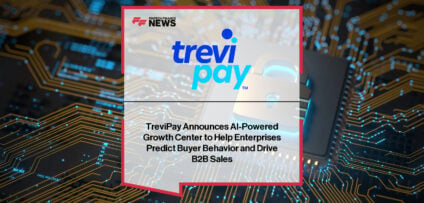Breaking News

Top Challenges Faced by Fintech Companies and How to Address Them
The world of fintech and banking is rapidly evolving, driven by technological advancements such as cashless payments, machine learning, and smartphone apps.
While these innovations have undoubtedly improved user experiences, they have also introduced new challenges that must be addressed to ensure a secure and seamless system.
Below, we will examine the top challenges facing fintech companies and explore some of the solutions available to mitigate these risks.
System Vulnerabilities
One of the most significant challenges facing fintech companies is the increasing risk of system vulnerabilities. Given the sensitivity of the financial sector and the frequent occurrence of sensitive and private data, regulatory authorities have placed an increased focus on the vulnerabilities of banking and financial systems. Statistics show that every tenth internet-using web application has high and critical risks, and 46% of online applications have vulnerability problems.
Traditional banking systems often use CCTV, security guards, bulletproof doors and glass, and vaults to keep data and valuables safe and secure. However, despite these measures, hackers can still breach these systems and steal sensitive information. To combat this, fintech companies can implement various security measures such as two-factor authentication, data encryption, biometric identification, real-time alerts and notifications, AI security analytics, and routing data in the network.
Digital Identities
The rise of smartphone apps and contactless payments has brought about the challenge of digital identities.
Digital IDs should have key features that ensure user safety, including trust and verification, security against theft, loss, and corruption, and portability, similar to physical documents.
Data Ownership
Data ownership refers to who can manipulate data in the fintech and banking industries. The regulatory system decides who can create, access, modify, and delete data.
Security roles determine the ownership of data in fintech software solutions. This enables effective management of complicated circumstances involving access credentials and access level.
Third-Party Service Integrations
Third-party service integrations have become an integral part of modern applications, allowing users to see coherence and effective performance throughout their apps.
However, these integrations can pose security risks. Insufficient security in third-party integrations can harm the fintech industry, compromising app security and digital security of banking and financial assets.
Cloud Migration
Financial and banking institutions are adopting more cloud computing technologies to increase efficiency and reduce costs. However, not all companies can integrate them into their systems.
Fintech cloud migration technologies are open to some stereotypes that can be off-putting for companies, including cost estimations, data management and security, and data confidentiality. Each company should weigh the advantages and disadvantages of such a move before deciding.
Malware Attacks
Fintech and banking industries face the constant threat of malware attacks that can cripple their infrastructure. Finance and insurance are the industries most frequently targeted by cybercriminals.
Companies can suffer reputational and operational damage when they become the target of a ransomware attack.
User Retention and Experience
Fintech companies rely on consistent users to stay profitable, but they must balance user experience and security practices. Offering a mobile banking app that is both safe and easy to use is essential.
However, the more layers of protection used on the app, the higher the chance of losing some users based on customer experience. Fintech companies must ensure a safe and user-friendly interface.
Solutions for Fintech Industry Risks and Challenges
Fintech companies can mitigate risks and address these challenges in various ways. For example, adopting a secure-by-design mindset is crucial to fintech software development and implementation. This mindset involves investing resources to create a clear cyberattack defense infrastructure, minimizing penetration risks, and reducing infrastructure recovery costs. Fintech companies must also protect personal user data by limiting access only to authorized personnel.
Fintech companies must constantly update their security protocols to stay up to date with new vulnerabilities and ensure user data is always safe.
Data encryption is one of the most sought-after measures for protecting sensitive data. It transforms data into formats readable only by people with access to a decryption key.
Using software composition analysis
Software composition analysis is the name of an automated process that works by identifying open-source software in a codebase. Simply put, it allows companies to evaluate their system security, code compliance, and quality quickly.
Companies in the fintech sector usually use this system to identify problems and brainstorm actions to remediate them proactively. By extension, it minimizes or entirely avoids financial, operational, and reputational impacts on companies.
Final thoughts
There are many things to consider when working in fintech and the banking industry, which is why some new companies fail.
Nevertheless, being aware of the potential risks and problems in fintech development and selecting an expert technical supplier can considerably boost the possibilities of releasing a solid and effective software solution that works perfectly for your company’s demands and goals.
- Bluefin and Basis Theory Partner to Enable Unified Tokenization Across Digital and In-Person Payments Read more
- Invest Bank and AUTON8 Build Partnership to Drive Digital Resilience and Banking Agility Read more
- ING’s AI Roadmap: Platform, People, and Agentic AI Read more
- UK-fintech Provided Over £17.5m in Emergency Wage Advances to More Than 55,000 Employees in the Last Year Read more
- TreviPay Announces AI-Powered Growth Center to Help Enterprises Predict Buyer Behavior and Drive B2B Sales Read more











